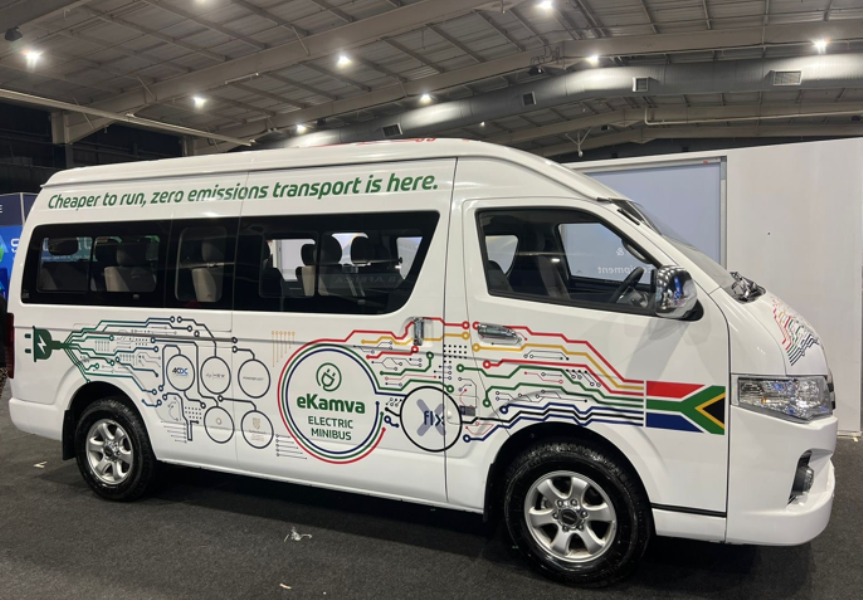South Africa’s first electric minibus taxi model, eKamva, was launched by a consortium led by GoMetro, alongside an integrated new electric vehicle (EV) business model and charging infrastructure product called flx EV at the Smarter Mobility Africa summit. eKamva was launched by a partnership of companies and research institutions, led by GoMetro, a transport technology platform.
The partnership kicked off in 2023 to investigate and advance the feasibility of an electric minibus taxi in South African conditions by testing production vehicles in South Africa. The project team, consisting of GoMetro, Powerfleet (formerly MiX Telematics), HSW, ACDC Dynamics, and various entities within Stellenbosch University’s Faculty of Engineering, conducted rigorous and extensive testing in and around the town of Stellenbosch on existing taxi routes, using traditional minibus taxis.
The flx EV website will soon allow minibus taxi owners and operators to apply to be added to the waiting list for the solution. flx EV is in the process of developing charging hubs with partners across South Africa, with the first hubs slated for development in Century City and Stellenbosch in the next 12 months. The flx EV app will let taxi owners manage their fleets, see each vehicle’s status and prepay for recharging, while drivers will be directed to their closest charging hub.
GoMetro CEO Justin Coetzee says, “This is a new approach to electrifying the smaller-vehicle public transport industry. We believe it will spark an entirely new economic sector and is socio-economically very important for the automotive sector.”
Historical data gathered by GoMetro indicates that replacing urban taxi and shuttle fleets with eKamvas will reduce carbon dioxide emissions by 13.7 tonnes per vehicle per annum, says project lead Rudi Kriel.
“Most taxis spend up to three hours a day between morning and evening peak hours at the ranks we have analyzed, more than sufficient time to fast-charge an eKwamva,” Kriel says.
“EVs have fewer breakdowns than internal combustion vehicles, and are cheaper to run, which leads to increased profitability per vehicle – and they have a longer life expectancy,” he continues. “EVs also reduce nitrous oxides, sulphur oxides and particulate matter (known as PM2.5 particles) in the air, improving community health, a major cost factor for the government.”

